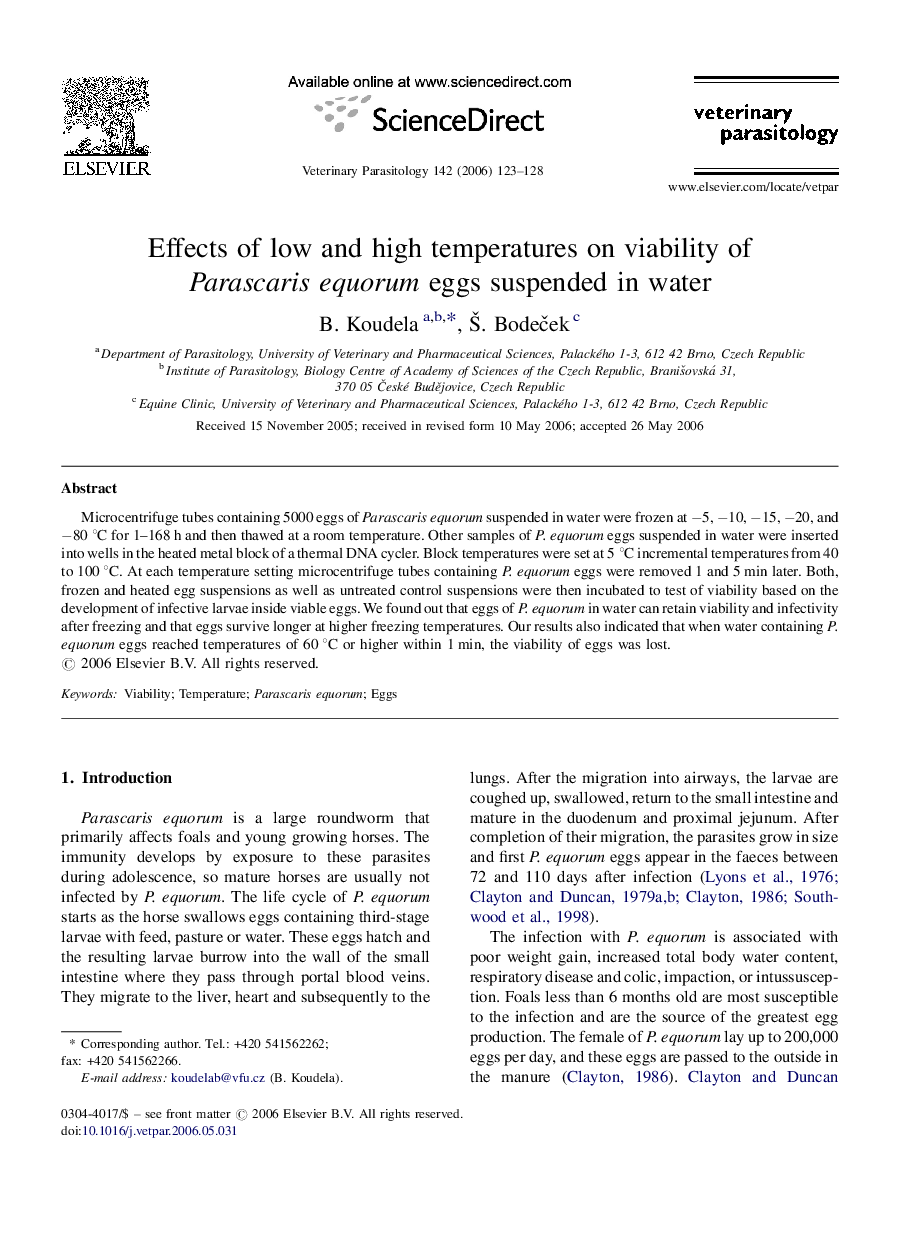| Article ID | Journal | Published Year | Pages | File Type |
|---|---|---|---|---|
| 2472287 | Veterinary Parasitology | 2006 | 6 Pages |
Microcentrifuge tubes containing 5000 eggs of Parascaris equorum suspended in water were frozen at −5, −10, −15, −20, and −80 °C for 1–168 h and then thawed at a room temperature. Other samples of P. equorum eggs suspended in water were inserted into wells in the heated metal block of a thermal DNA cycler. Block temperatures were set at 5 °C incremental temperatures from 40 to 100 °C. At each temperature setting microcentrifuge tubes containing P. equorum eggs were removed 1 and 5 min later. Both, frozen and heated egg suspensions as well as untreated control suspensions were then incubated to test of viability based on the development of infective larvae inside viable eggs. We found out that eggs of P. equorum in water can retain viability and infectivity after freezing and that eggs survive longer at higher freezing temperatures. Our results also indicated that when water containing P. equorum eggs reached temperatures of 60 °C or higher within 1 min, the viability of eggs was lost.
